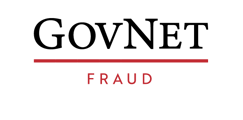Leadership and governance are essential pillars in the fight against fraud and corruption within the UK public sector. This blog post delves into the pivotal role that leadership plays in preventing and addressing fraudulent activities, highlighting the responsibility of senior officials in promoting a culture of integrity and accountability.
Setting the Tone at the Top
Leadership sets the tone for organisational culture and behaviour. Senior officials within the UK public sector have a responsibility to lead by example and demonstrate unwavering commitment to ethical conduct. By championing integrity, transparency, and accountability, leaders create a culture where fraudulent activities are not tolerated and ethical behaviour is the norm.
Fostering a Culture of Integrity
A culture of integrity is the cornerstone of effective fraud prevention. Leaders must instil values of honesty, fairness, and ethical behaviour throughout the organisation, from top to bottom. By promoting open communication, encouraging whistleblowing, and rewarding ethical conduct, leaders create an environment where employees feel empowered to act with integrity and report concerns about fraud and corruption.
Implementing Robust Internal Controls
Leadership plays a critical role in establishing and enforcing robust internal controls to prevent and detect fraudulent activities. Senior officials must ensure that appropriate policies, procedures, and safeguards are in place to mitigate the risk of fraud and corruption. By conducting regular risk assessments, monitoring compliance, and conducting internal audits, leaders can identify vulnerabilities and take proactive measures to strengthen controls.
Holding Perpetrators Accountable
Accountability is essential in combatting fraud and corruption. Leaders must hold perpetrators accountable for their actions and ensure that appropriate disciplinary measures are taken. This includes conducting thorough investigations into allegations of fraud and corruption, cooperating with law enforcement agencies, and imposing sanctions on individuals found guilty of misconduct.
Promoting Transparency and Oversight
Transparency and oversight are essential for detecting and deterring fraudulent activities. Leaders must promote transparency in decision-making processes, financial reporting, and procurement practices to minimise the risk of corruption. By establishing oversight mechanisms, such as audit committees and independent reviews, leaders can ensure that public funds are used responsibly and ethically.
Conclusion
Leadership plays a pivotal role in preventing and addressing fraud and corruption in the UK public sector. Senior officials have a responsibility to promote a culture of integrity and accountability, establish robust internal controls, hold perpetrators accountable, and promote transparency and oversight. By demonstrating strong leadership and commitment to ethical conduct, leaders can help safeguard public resources, protect the interests of citizens, and uphold the trust and confidence in government institutions.

Nicole Lummis
After a career in Project Management, I realised how important it was for me to pursue a career with a more creative career path. I have a passion for creating engaging digital content whether through written content or the use of image, graphics or videos.




